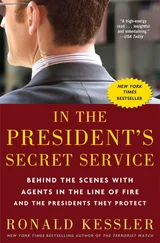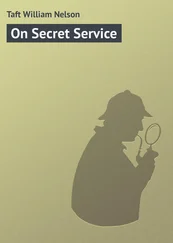William Fitzpatrick - Secret Service Under Pitt
Здесь есть возможность читать онлайн «William Fitzpatrick - Secret Service Under Pitt» — ознакомительный отрывок электронной книги совершенно бесплатно, а после прочтения отрывка купить полную версию. В некоторых случаях можно слушать аудио, скачать через торрент в формате fb2 и присутствует краткое содержание. Жанр: foreign_antique, foreign_prose, на английском языке. Описание произведения, (предисловие) а так же отзывы посетителей доступны на портале библиотеки ЛибКат.
- Название:Secret Service Under Pitt
- Автор:
- Жанр:
- Год:неизвестен
- ISBN:нет данных
- Рейтинг книги:5 / 5. Голосов: 1
-
Избранное:Добавить в избранное
- Отзывы:
-
Ваша оценка:
- 100
- 1
- 2
- 3
- 4
- 5
Secret Service Under Pitt: краткое содержание, описание и аннотация
Предлагаем к чтению аннотацию, описание, краткое содержание или предисловие (зависит от того, что написал сам автор книги «Secret Service Under Pitt»). Если вы не нашли необходимую информацию о книге — напишите в комментариях, мы постараемся отыскать её.
Secret Service Under Pitt — читать онлайн ознакомительный отрывок
Ниже представлен текст книги, разбитый по страницам. Система сохранения места последней прочитанной страницы, позволяет с удобством читать онлайн бесплатно книгу «Secret Service Under Pitt», без необходимости каждый раз заново искать на чём Вы остановились. Поставьте закладку, и сможете в любой момент перейти на страницу, на которой закончили чтение.
Интервал:
Закладка:
The general accuracy of Mr. O'Byrne's impressions is shown by the 'Life and Confessions of Newell the Informer,' printed for the author at London in 1798. 32 32 Vide pp. 21 -2. Newell's pamphlet will be found in the Halliday Collection, vol. 743, Royal Irish Academy.
Newell travelled with the staff of Lord Carhampton, and in April, 1797, witnessed the scene between Turner and him.
Newell's pamphlet, which created much noise at the time and had a large circulation, did not tend to weaken popular confidence in Turner. It appeared soon after the time that he had begun to play false; but Newell, with all his cunning, had no suspicion of Turner.
The late Mr. J. Mathews, of Dundalk, collected curious details regarding the rebel organisation of Ulster in 1797. With these details the name of Samuel Turner is interwoven, but, although the object of Mathews was to expose the treachery of some false brothers, he assigns to Turner the rank of a patriot and a hero. How the authorities, by a coup , made a number of arrests, is described; and how Turner, after some exciting adventures, got safely to France. 33 33 Vide Mr. Matthew's narrative in The Sham Squire , sixth edition, pp. 355 -363.
The spy on this occasion was Mr. Conlan, a medical practitioner in Dundalk. A sworn information, signed by Conlan, is preserved among the Sirr MSS. in Trinity College, Dublin. It is dated 1798, when Turner himself was betraying his own colleagues to Pitt! Conlan states that one evening, after Turner had left his house at Newry to attend a meeting of United Irishmen at Dundalk, the officer in command at the barracks of Newry got orders to march on Dundalk and arrest the leaders. An officer's servant apprised Corcoran, who was an adherent of Turner's. Corcoran mounted a horse and galloped to Dundalk, where he arrived in time to warn Turner. Conlan recollected Turner and Teeling travelling through Ulster and holding meetings for organisation at Dundalk, Newry, Ballinahinch (the site of the subsequent battle), Ronaldstown, Glanary, and in Dublin at Kearn's, Kildare Street, 34 34 This place of rendezvous was, doubtless, chosen because of its proximity to Leinster House, where Lord Edward mainly lived.
where the principal meetings were held. 35 35 Major Sirr's Papers (MS.), Trinity College, Dublin. Conlan's information makes no mention of a remarkable man, the Rev. William Steel Dickson, D.D., a Presbyterian pastor of Down, and described by the historians of his Church as ready to take the field. Dr. Dickson, in his Narrative , admits (p. 193 ) that he had been 'frequently in the company of Lowry, Turner, and Teeling.' Turner was a Presbyterian and possibly wished to spare a pastor of his Church.
I find in the Pelham MSS. the examination of Dr. John Macara, one of the Northern State prisoners of 1797. It supplies details of the plan of attack which had been foiled by the arrests. 'Newry was to be attacked by Samuel Turner, of Newry aforesaid, with the men from Newry and Mourn.' 36 36 The Pelham MSS. Examination dated September 6, 1797. Pelham, afterwards Lord Chichester, was Chief Secretary for Ireland at that time, and his papers are a useful help in throwing light upon it. A large portion of them are occupied by a correspondence with Generals Lake and Nugent regarding Dr. Macara; he offered to inform if let out on bail. Lake hoped that he would prove a valuable informer; and, as he was far from rich, could not afford to reject pecuniary reward; but, although Macara at first seemed to consent, his replies were finally found to be evasive.
It was not Conlan alone who reported Turner's movements to the Crown. Francis Higgins, the ablest secret agent of Under-Secretary Cooke, announces that Turner had sent 'letters from Portsmouth for the purpose of upholding and misleading the mutinous seamen into avowed rebellion;' 37 37 Higgins to Cooke, MS. letter, Dublin Castle, June 7, 1797.
and some weeks later he states that 'Turner had returned from Hamburg with an answer to the Secret Committee of United Irishmen.' 38 38 Ibid. , August 29, 1797. Five weeks later Turner makes his disclosure to Downshire.
We know on the authority of James Hope, who wrote down his 'Recollections' of this time at the request of a friend, that Turner, having fled from Ireland, filled the office of resident agent at Hamburg of the United Irishmen. The Irish envoys and refugees, finding themselves in a place hardly less strange than Tierra del Fuego, ignorant of its language, its rules and its ways, sought on arrival the accredited agent of their brotherhood, hailed him with joy, and regarded the spot on which he dwelt as a bit of Irish soil sacred to the Shamrock. The hardship which some of the refugees went through was trying enough. James Hope, writing in 1846, says that Palmer, one of Lord Edward's bodyguard in Dublin, travelled, 'mostly barefooted, from Paris to Hamburg, where he put himself into communication with Samuel Turner.' The object of Palmer's mission was to expose one Bureaud, then employed as a spy by Holland. 'Palmer,' writes Hope, 'gave Turner a gold watch to keep for him.' He enlisted in a Dutch regiment, and was found drowned in the Scheldt. 'When Turner,' adds Hope, 'was applied to for the watch by Palmer's sister, he replied that he forgot what became of it.'
Hamburg in troubled times was a place of great importance for the maintenance of intercourse between England and France. Here, as Mr. Froude states, 'Lord Downshire's friend' had vast facilities for getting at the inmost secrets of the United Irishmen. Hope's casual statement serves to show how it was that this 'person' could have had access to Lady Edward Fitzgerald's confidence, and that of her political friends at Hamburg.
CHAPTER III
FATHER O'COIGLY HANGED
Mr. Froude, after a perusal of the letters of Downshire's friend, and other documents, states that a priest named O'Coigly or Quigley 'had visited Paris in 1797, returned to Dublin, and had been with Lord Edward Fitzgerald at Leinster House; that he was now going back to Paris, and Arthur O'Connor determined to go in his company. 39 39 The English in Ireland , iii. 312.
Their mission, though ostensibly for presenting an address from the London corresponding society of United Irishmen to the French Government, was really for the double purpose of urging upon it the prompt despatch of an invading fleet to Ireland, and of deposing the Irish envoy, Lewins, who, instead of Turner, had begun to be suspected. Mr. Lawless, afterwards Lord Cloncurry, invited O'Coigly to dinner in London; and it was on this occasion that O'Connor met the priest for the first time. O'Coigly, under the name of Captain Jones, with Allen 40 40 Allen, a draper's assistant in Dublin, afterwards a colonel in the service of France.
seemingly as his servant, and Leary, left London for Margate, on their mission of mystery. O'Connor travelled by another route to Margate, took the name of Colonel Morris, and was accompanied by Binns. On the following day, at the King's Head Inn, Margate, all the party were arrested by two Bow Street officers. O'Coigly and O'Connor had dined at Lawless's lodgings more than once; and here, though not necessarily with his knowledge, the travelling arrangements seem to have been made. Whether Turner was a guest does not appear; but he was certainly in London at this time, and as one of the Executive Committee is likely to have been invited. Presently it will be shown that from this quarter came all the information which enabled Pitt to seize O'Connor and O'Coigly at Margate en route to France, although, to elude observation, they had journeyed by different roads. The prisoners, meanwhile, were removed to London, examined before the Privy Council, and then transmitted to Maidstone Jail to await their trial. The source of the information which caused these historic arrests on February 27, 1798, has hitherto remained a mystery. Father O'Coigly, while in jail, wrote some letters, in which he failed to avow his share in the conspiracy, but admitted to have made a previous visit to Cuxhaven. This was part of the city of Hamburg. Turner, in addition to being the official agent of the United Irishmen at Hamburg, was an old Dundalk acquaintance of O'Coigly's, and no doubt was promptly hailed by the country priest.
Интервал:
Закладка:
Похожие книги на «Secret Service Under Pitt»
Представляем Вашему вниманию похожие книги на «Secret Service Under Pitt» списком для выбора. Мы отобрали схожую по названию и смыслу литературу в надежде предоставить читателям больше вариантов отыскать новые, интересные, ещё непрочитанные произведения.
Обсуждение, отзывы о книге «Secret Service Under Pitt» и просто собственные мнения читателей. Оставьте ваши комментарии, напишите, что Вы думаете о произведении, его смысле или главных героях. Укажите что конкретно понравилось, а что нет, и почему Вы так считаете.












